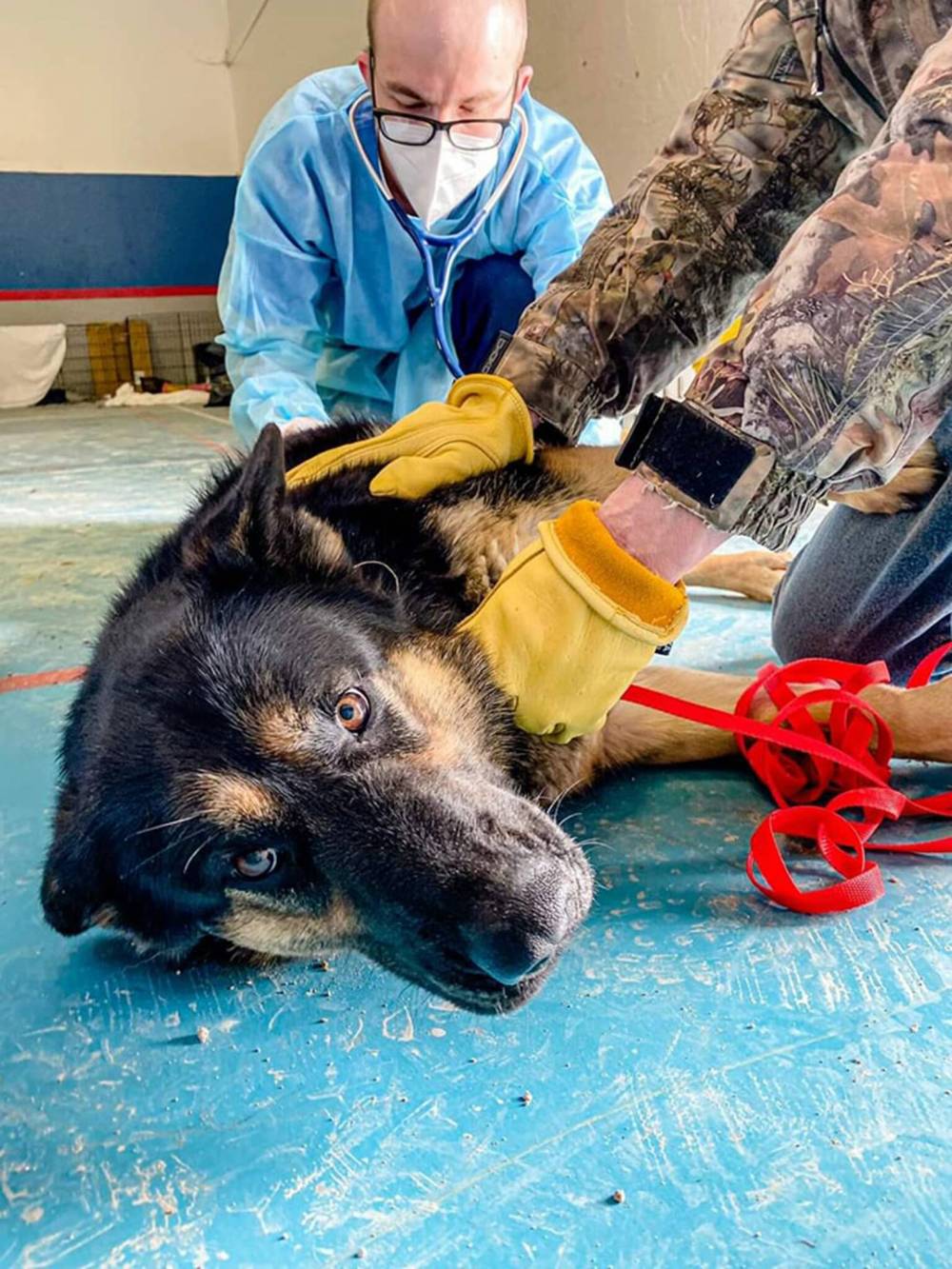Woman injured in dog attack at Peguis First Nation
Advertisement
Read this article for free:
or
Already have an account? Log in here »
To continue reading, please subscribe:
Monthly Digital Subscription
$0 for the first 4 weeks*
- Enjoy unlimited reading on winnipegfreepress.com
- Read the E-Edition, our digital replica newspaper
- Access News Break, our award-winning app
- Play interactive puzzles
*No charge for 4 weeks then price increases to the regular rate of $19.95 plus GST every four weeks. Offer available to new and qualified returning subscribers only. Cancel any time.
Monthly Digital Subscription
$4.99/week*
- Enjoy unlimited reading on winnipegfreepress.com
- Read the E-Edition, our digital replica newspaper
- Access News Break, our award-winning app
- Play interactive puzzles
*Billed as $19.95 plus GST every four weeks. Cancel any time.
To continue reading, please subscribe:
Add Free Press access to your Brandon Sun subscription for only an additional
$1 for the first 4 weeks*
*Your next subscription payment will increase by $1.00 and you will be charged $16.99 plus GST for four weeks. After four weeks, your payment will increase to $23.99 plus GST every four weeks.
Read unlimited articles for free today:
or
Already have an account? Log in here »
Hey there, time traveller!
This article was published 09/05/2023 (970 days ago), so information in it may no longer be current.
A woman was hospitalized with serious injuries after being attacked by dogs while walking Sunday in Peguis First Nation, underscoring the urgency of providing affordable spay and neuter options to remote communities to keep residents safe.
The 52-year-old was able to reach a nearby house to get help and was later airlifted to hospital. The dogs involved were later put down.
For remote and northern communities dealing with a combination of dog over-population, few vet care resources and financial barriers to getting help for both strays and owned pets, violent situations involving people or other animals is a danger, said Lindsay Gillanders, a spokesperson with Manitoba Underdogs Rescue.

MANITOBA ANIMAL ALLIANCE / FACEBOOK
Winnipeg veterinary doctor Aaron Mooi working at a Peguis First Nation pop-up clinic.
“Just like desperate people can turn to some pretty desperate behaviors, desperate animals can do the exact same thing… Desperate animals trying to survive and running on instinct, and some of the horrible, horrible things that come out as a result.”
Peguis Chief Stan Bird did not respond to an interview request by deadline Tuesday.
Underdogs (which runs solely on donations) provides spay and neuter clinics to communities upon request, in hopes of mitigating the long-standing issue of stray and feral dog populations, which can gather in packs and become violent toward humans and other animals.
An average subsidized spay and neuter clinic costs $6,000-$8,000.
The need for more clinics is apparent, and the interest from community leaders is there, but the non-profits that provide them are struggling in a COVID-19 pandemic world that has had charities across the board grapple with fewer donations and volunteer hours, Gillanders said.
“There’s lots of complaints right now in the health-care system for people, but we also have to realize that there’s just sort of a… health-care crisis in general, and that includes animals,” she said.
Two weeks ago, Winnipeg veterinary doctor Aaron Mooi and community members set up a pop-up clinic at Peguis, working together to spay, neuter, vaccinate and give check-ups to 175 cats and dogs.
“I think we had one bathroom break, collectively, sort of mid-time. But otherwise, we were seeing animals for 14 hours straight,” Mooi said Tuesday of the April 27 clinic organized by non-profit Manitoba Animal Alliance.
“And with the number of animals, we saw one animal every 4 1/2 minutes… It’s a lot of work, but we go out there to do a lot of work and to see as many animals as possible. So the turnout was fantastic.”
Along with spaying and neutering, Mooi gives an exam to any animal that will let him — eyes, ears and mouth — and discusses further care with whoever brought the animal in. For $50, community members get a bag of food, parasite and de-worming medication, and rabies and parvo vaccines for the animal.
Mooi is scheduled to return next month to Peguis (some 190 kilometres north of Winnipeg). There was a five-hour wait at the first clinic’s peak, he said, and 80 community members have expressed interest in bringing in more animals since.
“Such an important part of it is getting that buy-in from the community and getting the OK to do it, and having the relationships with those community members,” he said. “Because without that relationship, nothing’s going to happen.”
Spay and neuter pop-up clinics are successful every time they happen at Chemawawin Cree Nation, Chief Clarence Easter said.
However, it, too, faces a post-pandemic problem: the years without clinics due to COVID restrictions resulted in a noticeable rise in the dog population at the First Nation some 440 km north of Winnipeg.
“They’ve gone down a little bit since, but we’re working on them, we have people working on it every day,” Easter said.
In the time in between clinics, Chemawawin leadership focuses on outreach.
“We tell the dog owners that either the dog gets spayed or neutered or keep it at home. If the dog’s running around, then they’re homeless. That’s sort of the message we’re putting out there,” he said.
Dog culling — a practice where strays are killed to mitigate populations — is a thing of the far past in the community, Easter said. “We used to do it quite a bit before, but now since (Underdogs) is coming, we don’t use it.”
malak.abas@freepress.mb.ca

Malak Abas is a city reporter at the Free Press. Born and raised in Winnipeg’s North End, she led the campus paper at the University of Manitoba before joining the Free Press in 2020. Read more about Malak.
Every piece of reporting Malak produces is reviewed by an editing team before it is posted online or published in print — part of the Free Press‘s tradition, since 1872, of producing reliable independent journalism. Read more about Free Press’s history and mandate, and learn how our newsroom operates.
Our newsroom depends on a growing audience of readers to power our journalism. If you are not a paid reader, please consider becoming a subscriber.
Our newsroom depends on its audience of readers to power our journalism. Thank you for your support.




